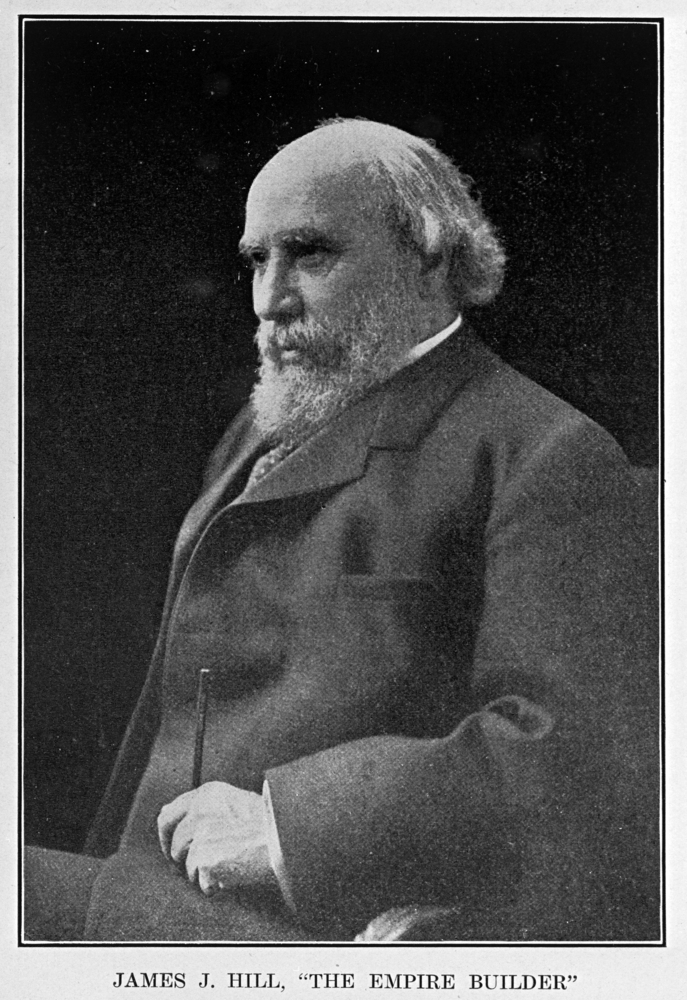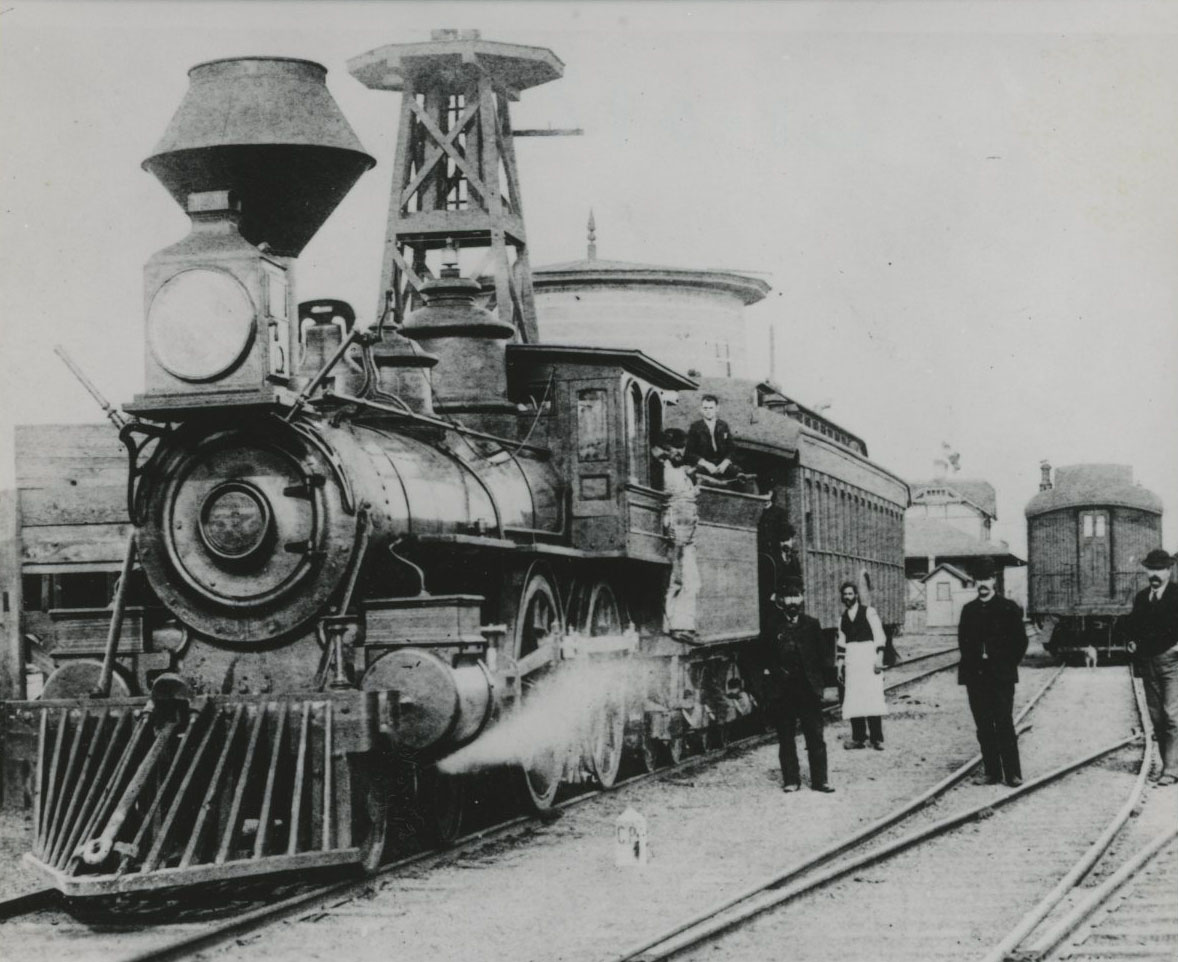James Jerome Hill was one of the United States’ preeminent railroad managers during the late nineteenth and early twentieth centuries. As the long-time president of the Great Northern Railroad, Hill tilted with Henry Villard and, later, Edward H. Harriman, to control rail transportation in Oregon and the American northwest. Dominating transportation in the Pacific Northwest at the onset of the twentieth century, Hill played a pivotal role in the region’s economic development.
Born in 1838 in frontier Ontario, Hill immigrated to the United States, arriving as a teenager at St. Paul, Minnesota Territory, in 1856. There, he forged a career in the warehousing and steamboat trade. As he approached middle age, he joined with the "Associates,” a group of powerful investors, to complete the St. Paul & Pacific line through Minnesota’s Red River Valley to the Canadian border. Subsequently, he built the successor St. Paul, Minneapolis & Manitoba to western Montana Territory and extended the railway under its new name, the Great Northern (GN), to Seattle in 1893.
During the economic hard times of the 1890s, the Empire Builder, as Hill was called, allied himself with J.P. Morgan. Together, they purchased de facto control of the Northern Pacific Railroad (NP). Tapping the NP’s massive land grant, they sold an enormous tract of Pacific Northwestern timberlands to Frederick Weyerhaeuser in 1899, triggering a shift in the center of the nation’s lumber industry from the Upper Midwest to the Northwest Coast.
Following a sharp contest with Edward H. Harriman for control of the northwest's railroads, Hill and Morgan created the Northern Securities holding company to secure the “Hill Lines” (GN, NP, CB&Q, and the Spokane, Portland & Seattle). As the largest railroad organization of its day and one that sharply reduced competition in the Pacific Northwest, the company immediately drew the hostility of President Theodore Roosevelt. Following a momentous legal battle, the Supreme Court ordered the company’s dissolution in 1901.
For his part, Harriman continued to contest Hill's dominance, most notably in central Oregon’s Deschutes Canyon “war” of 1909. However, Hill and the Union Pacific, led by Robert Lovett after Harriman’s death, subsequently settled their differences and agreed to share the line through the narrow canyon.
The “Hill Lines” continued to significantly affect Oregon's and the Northwest’s economy long after that dispute and James J. Hill’s death in 1916. In 1970, the railway lines again merged to form the Burlington Northern (now Burlington Northern Santa Fe) system.
As an enormously powerful transportation figure after 1900, James J. Hill played a pivotal role in the Pacific Northwest's economic development. The "Hill Lines" firmly linked the region to the national marketplace, while they provided the crucial infrastructure for the region's mushrooming cities, towns, and villages. Hill's entry into commerce with Pacific Rim nations added to the region's economy. Consequently, Oregon and the Pacific Northwest's population grew significantly as its farming, timber, and commercial sectors boomed from 1900 to 1920.
-
![James J. Hill.]()
James J. Hill.
James J. Hill. Oreg. Hist. Soc. Research Lib., bb004364
Related Entries
Related Historical Records
Further Reading
Hidy, Ralph W. et al. The Great Northern Railway: A History. 1988. Reprint, Minneapolis: University of Minnesota Press, 2004.
Malone, Michael P. James J. Hill: Empire Builder of the Northwest. Norman: University of Oklahoma Press, 1996.
Martin, Albro. James J. Hill and the Opening of the Northwest. 1977. Reprint, St. Paul: Minnesota Historical Society Press, 1991.


